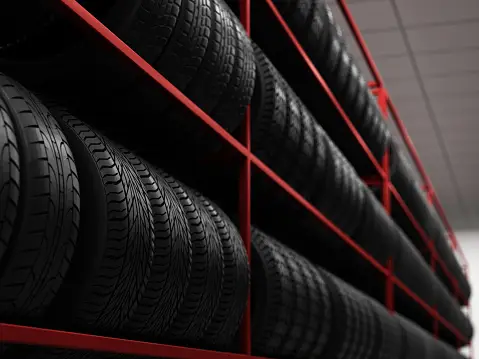November 23, 2023
Can I just replace one tyre?
Yes, you can replace just one tire on your vehicle if it’s damaged or worn out, but there are some important considerations to keep in mind:
- Tire Matching: Ideally, you should replace the damaged or worn tire with one that matches the brand, model, size, and tread pattern of the remaining tires on your vehicle. This helps maintain even traction and handling.
- Tire Wear: If the remaining three tires have significantly less tread wear than the one you’re replacing, it may be a good idea to replace more than one tire to maintain balanced handling and traction. Mismatched tires in terms of wear can affect the vehicle’s stability and handling.
- All-Wheel Drive (AWD) and Four-Wheel Drive (4WD) Vehicles: If you have an AWD or 4WD vehicle, it’s generally recommended to replace all four tires at the same time. Mismatched tire sizes can lead to drivetrain stress and damage in these systems.
- Consult Your Owner’s Manual: Always consult your vehicle’s owner’s manual for specific recommendations regarding tire replacement. Some vehicles may have manufacturer guidelines about tire replacement that you should follow.
- Tire Inspection: Before replacing a tire, have a professional technician inspect the condition of the tire and determine if it can be repaired. In some cases, a tire can be repaired rather than replaced, saving you money.
- Proper Tire Inflation: After replacing a tire, make sure it is properly inflated to the recommended pressure for your vehicle. Maintaining proper tire pressure is essential for safety and tire longevity.
- Tire Rotation: Consider rotating your tires regularly to ensure even wear and extend their lifespan. This practice can help prevent the need for replacing just one tire in the future.
In summary, while it’s possible to replace just one tire, it’s essential to consider the factors mentioned above to maintain safety, performance, and the longevity of your tires. If you have any doubts or questions, it’s advisable to consult with a professional mechanic or tire specialist who can provide guidance specific to your vehicle and its tire needs.

Is it okay to have one mismatched tire?
Ideally, it is not recommended to have a mismatched tire on your vehicle. Mismatched tires can affect your vehicle’s handling, traction, and safety. Here are some reasons why having a mismatched tire can be problematic:
- Handling and Stability: Tires are designed to work together as a set, and they have specific tread patterns and characteristics that can impact your vehicle’s handling and stability. A mismatched tire may have a different tread pattern or wear level, which can result in uneven traction and potentially affect your ability to control the vehicle, especially in adverse conditions.
- Traction: Different tires can have varying levels of grip, especially in wet or slippery conditions. A mismatched tire may have less traction than the other tires, potentially leading to reduced braking and cornering performance.
- Drivetrain Stress: In all-wheel-drive (AWD) and four-wheel-drive (4WD) vehicles, mismatched tire sizes can put additional stress on the drivetrain components, potentially leading to damage. These systems are designed to work with tires of the same size and circumference on all wheels.
- Tire Wear: Mismatched tires can wear unevenly, causing further disparities in tread depth and performance. This can result in the need to replace tires more frequently.
- Warranty Issues: If your vehicle is still under warranty, using mismatched tires may void certain warranties, especially if it leads to drivetrain or handling problems.
In summary, while it is possible to replace only one tire if necessary, it is generally advisable to replace all four tires or at least both tires on the same axle to ensure uniformity and safe performance. If you must use a mismatched tire temporarily, try to choose one with a similar size, tread pattern, and wear level to the existing tires. However, the best course of action is to consult with a professional tire technician or mechanic for guidance specific to your vehicle and its needs.
